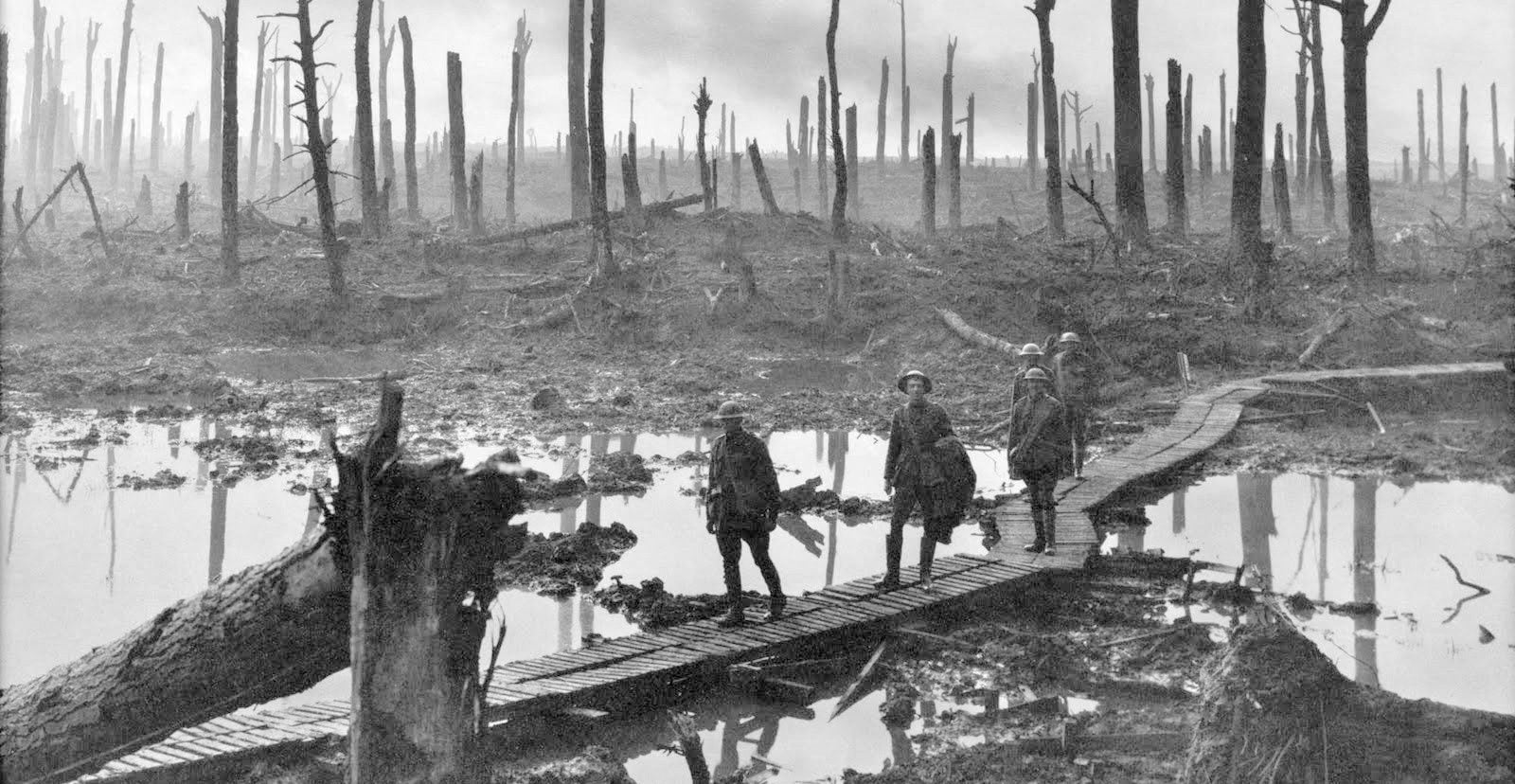September 1916, Courcelette, France
She shudders, huddled against the mud at her back. The mud at her feet. The mud, soaking into her socks, her tunic, even into that holy-of-holies, her sleeping sack in the dugout.
Her feet haven’t been dry since Calais.
Richardson pops up in front of her, youthful face spotted with freckles, reddish baby fuzz on his chin gleaming in the torchlight.

“Jonesy! I wanted to tell you something.” He’s more earnest than she could ever be. His voice is too exuberant for this place, a farm boy plunked in from some Prairie province who didn’t seem to notice the endless death. His mouth keeps moving, but the thundering rumble of a tank drowns out the rest of his words. “Every time!” He shakes his head, slapping the trench wall behind her in good-natured camaraderie.
He tilts his head back to give his customary laugh, grin so wide it splits his face, inexplicable joy in this hell.
Then, one shot. Just one, in the never-ending clamor.
Liquid sprays across her mouth. Richardson freezes. He thuds to his knees, then onto his side, cap sliding off to settle beside him.
She moves fast, wiping the back of her hand across her mouth as she drops down too. Her hand comes away grey, but she doesn’t have the capacity to figure that out, not yet. She crawls over to him.
Richardson groans, an animal sound of pain. Still alive, then. He shouldn’t be.
The top of his head is gone; lumpy pinkish bits visible. His cap is splashed with the same grey that was on her mouth.
Once she would have dry heaved here, or even shed a tear.
She doesn’t.
He sucks in a breath which rattles out of him on its release. “Freddy,” he gurgles.
She winces at the sound of her brother’s name. Guilt pricks her – not for coming here as him, she’d be his protector to the last – but for deceiving her fellow soldiers. They fight, they bleed, and they die together. They deserve better than her lies. They deserve to know her, her true self. But that’s the one thing she can’t give.
“Yes,” she says, unable to say anything else.
“Kill me.” The garbled voice is barely words anymore, but she understands. In more ways than one. Richardson’s groans give way to a high-pitched keening.
No more questions. There’s no one else around. Grabbing the canvas bag from her dugout, she pushes it over his mouth and nose and holds it there. He doesn’t fight; soon he’s still. She drops the bag back where it came from and goes in search of soap and water. She doesn’t speak to anyone on the way, doesn’t make eye contact.
When she finds what she’s searching for, she scrubs, scrubs, scrubs. She shouldn’t feel guilty for giving mercy when she’s done so much worse to so many more. But the rest was war, and this is personal. The loss of Richardson has done a number on her. He’s that person she wishes she was: open-minded, heart on his sleeve, everyone’s best friend. Or at least he was. Now he’s gone and she’s what’s left.
So she does feel guilty. And she can’t get clean.
She’s Lady Macbeth and it’s a damned spot and who would have thought the young man had so much brain in him and soon her hands and face are pristine, the cleanest things in this whole damned trench, the only thing the mud doesn’t touch.
Except there is a spot. A tiny black spot south of her left thumb. The more she scrubs, the bigger it gets, until her hands are red and chapped and still so pristine, other than the spot. That damned spot.
Now it’s the size of a penny.
She looks away, her breath coming quicker and quicker again. Maybe if she stopped washing, stopped thinking, stopped looking – just stopped. So, she takes a break. Except for the thinking; that she can’t stop. And it’s not only about the deception anymore. No, it’s this whole thing. The whole thing where she thought coming here would bring her family pride, show what she was made of, prove herself in valorous combat. Be home by Christmas. But instead it’s. . . this. Mud and blood and lies.
She looks back and the spot is the size of a quarter.
When she goes to touch it, her finger goes nowhere. Literally nowhere. No skin, no muscle, no tendon, no bone. A gap in her; a gap in reality.
But men are calling and it’s time to move. She’s nothing if not efficient in following commands. In seconds she has everything she owns, and they’re off.
Off, a line of army ants, out the back of the trench and along thin planks of wood surrounded by sucking clay deep enough to sink a man. Off, in the coal blackness toward the red flashes and the rolling thunder. Off, toward the sharp punctuations of whizz-bangs and the screaming of shells.
She swings her arms briskly.
But her left hand is gone.
There’s only a fuzzy stump at the end of that arm. No pain, just emptiness again. She stops, shifting to the edge of the plank so others can pass.
“Vicky,” a voice sighs from the darkness.
She jumps, the sound of her own name scaring her more than the damned spot that is her left hand. No, the spot that is her arm. For the gap has spread, and it’s as if she never had a left arm at all.
Then she sees a white moon face in the clay, tears running down his cheeks to splash into the muck surrounding him.
“Vicky,” he says again. She doesn’t jump this time. He’s a fellow soldier, but a stranger, crying out for a woman that mattered to him: not her. A coincidence.
Except that nobody else stops. Nobody else seems to see the man, who’s about to get sucked under. Not that there’s anything anyone could do.
So she stays, a final vigil. In a moment, the clay does what clay does – it sucks the man under with a pop. And he’s gone. One more life sacrificed to this blood-soaked and blood-hungry land.
She shifts to swing her bag over her shoulder with her right arm, but it’s gone too, the bag itself nowhere to be found. The men snaking along the boards no longer edge past her, they tramp on by as if she isn’t there at all.
And maybe she isn’t. When she looks down where her body should be, there’s nothing but blackness. Blackness and clay.
She’d bought the lie along with so many young men. A generation, splattered across the battlefields of Western Europe. Death by imperialism.
The guilt kept pricking. For her deception, for her arrogance, for her willingness to kill the farm boys with peach fuzz and wide grins on the other side. She hadn’t come only to protect her brother. She’d come for the guns and the glory. She’d found the guns, but no glory. Just death, and the mud.
Always the mud.
And then, nothing.
This story previously appeared in LampLight Magazine.
Edited by Marie Ginga
Jessica Peter writes dark, haunted, and sometimes absurd short stories, novels, and poems. She lives in Hamilton, Ontario, Canada. You can find her writing, now or soon, in LampLight Magazine, Haven Speculative, and Brigid’s Gate anthologies, among other places. You can find out more about her and her work at www.jessicapeter.net or @JessicaPeter1 on Twitter.

